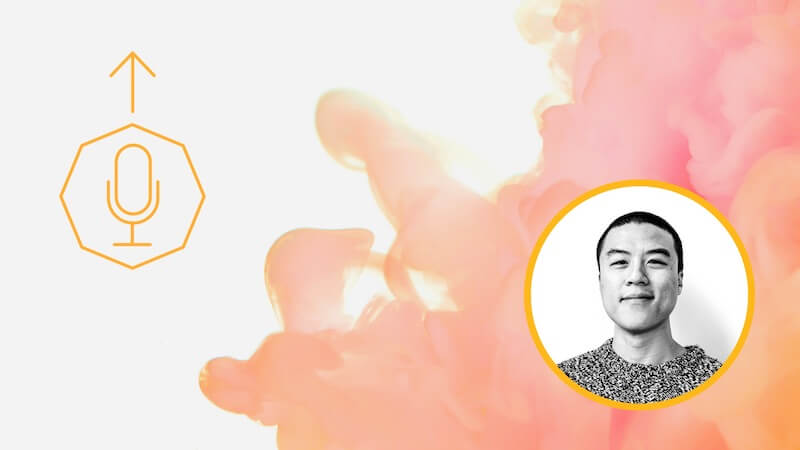
Terrance Ching is a US-based Chinese Singaporean who’s currently completing a PhD in clinical psychology at the University of Connecticut; his doctoral work examines the efficacy of MDMA-assisted psychotherapy for white participants and participants of color.
He’s also a gay man, and his approach to MDMA clinical trials are informed by his cultural and sexual identity, infusing the research process with culturally informed recruitment and assessment. “MDMA, to me, represented something that was inherently queer. It has such stigma in the United States that it became natural that I would gravitate toward MDMA as an option for healing from some of these minority stress processes that I've been going through.”
Terrance sat down with Voices of Esalen’s Sam Stern to talk more about how to build inclusivity into MDMA therapy from the ground up. Read on for the highlights of their conversation, or listen to the podcast for more.
“Where I come from in Singapore, mental illness is very much stigmatized. I lived with a family member with mental illness, and it was hard to see them struggle and understand that function and operate in an environment that wasn't really open to talking about mental illness. So early on my research, I looked at self-help approaches for addressing mental illness: What can we do that doesn't require the person to speak with someone face to face?
MDMA therapy seems to be at the other end of the spectrum; it's really an involved process. But it also brings a sense of hope for people who have struggled for a very long time with mental illness. In its very essence, it represents something that’s against the grain, a little countercultural, a little innovative.”
“If you go into the hospital, you see white medical staff and lab coats — it activates some stereotypes about what your experience might be like. Are they going to experiment on me? And these stereotypes are based in reality; there’s an unfortunate history of abuse of patients of color in medical settings, like the Tuskegee syphilis experiment. I did a year of grad school in Kentucky and I didn't know that Kentucky public hospitals had a history of abusing prisoners of color in psychedelic research...
Queer people too: the psychedelic protocol has traditionally had a gender aspect to it. In a co-therapeutic setting, one therapist needs to be the male and one needs to be female so that when transference occurs, you can see the father and the mother and that dynamic could be used for a therapeutic purpose. But when you talk about queer folks, or people who have been raised by same-gender parents, or people who don't feel safe in hetero-normative spaces, would that gender pairing be counterproductive to deeper psychedelic exploration?”
“I would like for any work to be led by science, and for the science to take place we need more equitable recruitment of diverse populations. A lot of this work has been funded by private organizations that aren’t necessarily holding investigators to the same standards as federally funded trials. Private organizations may have a specific agenda while federal funders operate within a framework that requires X percentage of diverse participants in your clinical trial, and you need to be able to write that into your proposal and deliver that.
I’d like private organizations to start exerting some pressure on grant applications to reflect the same level of intent about diversity in recruitment. And I would love for there also to be diversification of study staff: so, diversify everything, make sure it's equitable, and make sure that we have enough of a sample size to conduct the analysis that we need to then say MDMA therapy works just as well for people of color, queer folks, differently able folks, et cetera, than folks who are a non-Hispanic white, cisgender male, able-bodied, etc.”
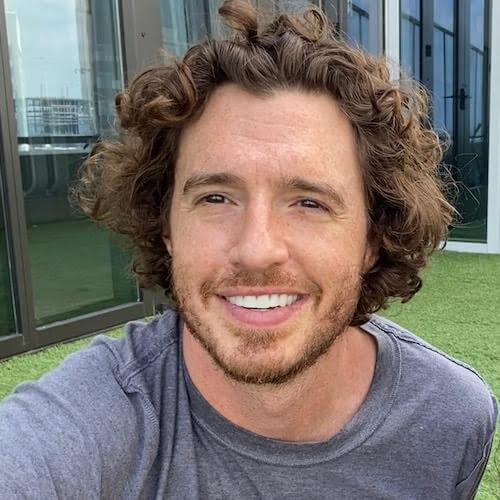
“Remembering to be as self compassionate as I can and praying to the divine that we're all a part of.”
–Aaron
“Prayer, reading, meditation, walking.”
–Karen
“Erratically — which is an ongoing stream of practice to find peace.”
–Charles
“Try on a daily basis to be kind to myself and to realize that making mistakes is a part of the human condition. Learning from our mistakes is a journey. But it starts with compassion and caring. First for oneself.”
–Steve
“Physically: aerobic exercise, volleyball, ice hockey, cycling, sailing. Emotionally: unfortunately I have to work to ‘not care’ about people or situations which may end painfully. Along the lines of ‘attachment is the source of suffering’, so best to avoid it or limit its scope. Sad though because it could also be the source of great joy. Is it worth the risk?“
–Rainer
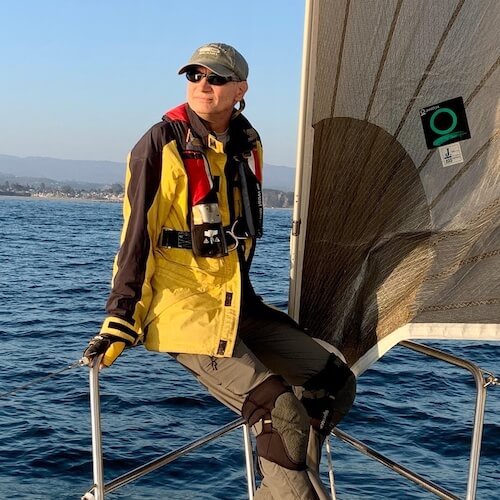

“It's time for my heart to be nurtured on one level yet contained on another. To go easy on me and to allow my feelings to be validated, not judged harshly. On the other hand, to let the heart rule with equanimity and not lead the mind and body around like a master.”
–Suzanne
“I spend time thinking of everything I am grateful for, and I try to develop my ability to express compassion for myself and others without reservation. I take time to do the things I need to do to keep myself healthy and happy. This includes taking experiential workshops, fostering relationships, and participating within groups which have a similar interest to become a more compassionate and fulfilled being.“
–Peter
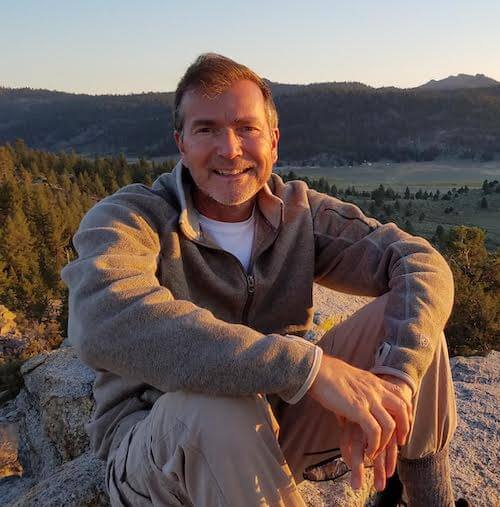
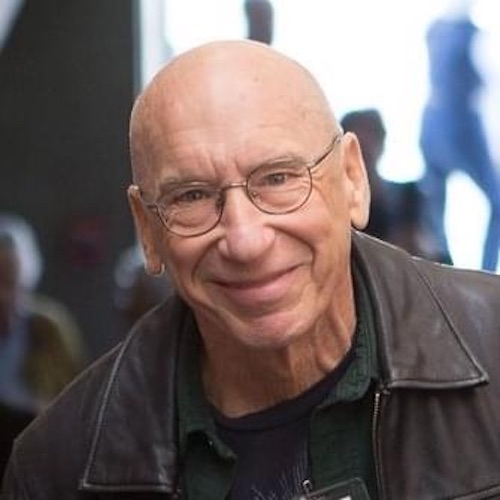
“Self-forgiveness for my own judgments. And oh yeah, coming to Esalen.”
–David B.
“Hmm, this is a tough one! I guess I take care of my heart through fostering relationships with people I feel connected to. Spending quality time with them (whether we're on the phone, through messages/letters, on Zoom, or in-person). Being there for them, listening to them, sharing what's going on with me, my struggles and my successes... like we do in the Esalen weekly Friends of Esalen Zoom sessions!”
–Lori

“I remind myself in many ways of the fact that " Love is all there is!" LOVE is the prize and this one precious life is the stage we get to learn our lessons. I get out into nature, hike, camp, river kayak, fly fish, garden, I create, I dance (not enough!), and I remain grateful for each day, each breath, each moment. Being in the moment, awake, and remembering the gift of life and my feeling of gratitude for all of creation.”
–Steven
“My physical heart by limiting stress and eating a heart-healthy diet. My emotional heart by staying in love with the world and by knowing that all disappointment and loss will pass.“
–David Z.
Today, September 29, is World Heart Day. Strike up a conversation with your own heart and as you feel comfortable, encourage others to do the same. As part of our own transformations and self-care, we sometimes ask for others to illuminate and enliven our hearts or speak our love language.
What if we could do this for ourselves too, even if just for today… or to start a heart practice, forever?

Terrance Ching is a US-based Chinese Singaporean who’s currently completing a PhD in clinical psychology at the University of Connecticut; his doctoral work examines the efficacy of MDMA-assisted psychotherapy for white participants and participants of color.
He’s also a gay man, and his approach to MDMA clinical trials are informed by his cultural and sexual identity, infusing the research process with culturally informed recruitment and assessment. “MDMA, to me, represented something that was inherently queer. It has such stigma in the United States that it became natural that I would gravitate toward MDMA as an option for healing from some of these minority stress processes that I've been going through.”
Terrance sat down with Voices of Esalen’s Sam Stern to talk more about how to build inclusivity into MDMA therapy from the ground up. Read on for the highlights of their conversation, or listen to the podcast for more.
“Where I come from in Singapore, mental illness is very much stigmatized. I lived with a family member with mental illness, and it was hard to see them struggle and understand that function and operate in an environment that wasn't really open to talking about mental illness. So early on my research, I looked at self-help approaches for addressing mental illness: What can we do that doesn't require the person to speak with someone face to face?
MDMA therapy seems to be at the other end of the spectrum; it's really an involved process. But it also brings a sense of hope for people who have struggled for a very long time with mental illness. In its very essence, it represents something that’s against the grain, a little countercultural, a little innovative.”
“If you go into the hospital, you see white medical staff and lab coats — it activates some stereotypes about what your experience might be like. Are they going to experiment on me? And these stereotypes are based in reality; there’s an unfortunate history of abuse of patients of color in medical settings, like the Tuskegee syphilis experiment. I did a year of grad school in Kentucky and I didn't know that Kentucky public hospitals had a history of abusing prisoners of color in psychedelic research...
Queer people too: the psychedelic protocol has traditionally had a gender aspect to it. In a co-therapeutic setting, one therapist needs to be the male and one needs to be female so that when transference occurs, you can see the father and the mother and that dynamic could be used for a therapeutic purpose. But when you talk about queer folks, or people who have been raised by same-gender parents, or people who don't feel safe in hetero-normative spaces, would that gender pairing be counterproductive to deeper psychedelic exploration?”
“I would like for any work to be led by science, and for the science to take place we need more equitable recruitment of diverse populations. A lot of this work has been funded by private organizations that aren’t necessarily holding investigators to the same standards as federally funded trials. Private organizations may have a specific agenda while federal funders operate within a framework that requires X percentage of diverse participants in your clinical trial, and you need to be able to write that into your proposal and deliver that.
I’d like private organizations to start exerting some pressure on grant applications to reflect the same level of intent about diversity in recruitment. And I would love for there also to be diversification of study staff: so, diversify everything, make sure it's equitable, and make sure that we have enough of a sample size to conduct the analysis that we need to then say MDMA therapy works just as well for people of color, queer folks, differently able folks, et cetera, than folks who are a non-Hispanic white, cisgender male, able-bodied, etc.”

“Remembering to be as self compassionate as I can and praying to the divine that we're all a part of.”
–Aaron
“Prayer, reading, meditation, walking.”
–Karen
“Erratically — which is an ongoing stream of practice to find peace.”
–Charles
“Try on a daily basis to be kind to myself and to realize that making mistakes is a part of the human condition. Learning from our mistakes is a journey. But it starts with compassion and caring. First for oneself.”
–Steve
“Physically: aerobic exercise, volleyball, ice hockey, cycling, sailing. Emotionally: unfortunately I have to work to ‘not care’ about people or situations which may end painfully. Along the lines of ‘attachment is the source of suffering’, so best to avoid it or limit its scope. Sad though because it could also be the source of great joy. Is it worth the risk?“
–Rainer


“It's time for my heart to be nurtured on one level yet contained on another. To go easy on me and to allow my feelings to be validated, not judged harshly. On the other hand, to let the heart rule with equanimity and not lead the mind and body around like a master.”
–Suzanne
“I spend time thinking of everything I am grateful for, and I try to develop my ability to express compassion for myself and others without reservation. I take time to do the things I need to do to keep myself healthy and happy. This includes taking experiential workshops, fostering relationships, and participating within groups which have a similar interest to become a more compassionate and fulfilled being.“
–Peter


“Self-forgiveness for my own judgments. And oh yeah, coming to Esalen.”
–David B.
“Hmm, this is a tough one! I guess I take care of my heart through fostering relationships with people I feel connected to. Spending quality time with them (whether we're on the phone, through messages/letters, on Zoom, or in-person). Being there for them, listening to them, sharing what's going on with me, my struggles and my successes... like we do in the Esalen weekly Friends of Esalen Zoom sessions!”
–Lori

“I remind myself in many ways of the fact that " Love is all there is!" LOVE is the prize and this one precious life is the stage we get to learn our lessons. I get out into nature, hike, camp, river kayak, fly fish, garden, I create, I dance (not enough!), and I remain grateful for each day, each breath, each moment. Being in the moment, awake, and remembering the gift of life and my feeling of gratitude for all of creation.”
–Steven
“My physical heart by limiting stress and eating a heart-healthy diet. My emotional heart by staying in love with the world and by knowing that all disappointment and loss will pass.“
–David Z.
Today, September 29, is World Heart Day. Strike up a conversation with your own heart and as you feel comfortable, encourage others to do the same. As part of our own transformations and self-care, we sometimes ask for others to illuminate and enliven our hearts or speak our love language.
What if we could do this for ourselves too, even if just for today… or to start a heart practice, forever?

Terrance Ching is a US-based Chinese Singaporean who’s currently completing a PhD in clinical psychology at the University of Connecticut; his doctoral work examines the efficacy of MDMA-assisted psychotherapy for white participants and participants of color.
He’s also a gay man, and his approach to MDMA clinical trials are informed by his cultural and sexual identity, infusing the research process with culturally informed recruitment and assessment. “MDMA, to me, represented something that was inherently queer. It has such stigma in the United States that it became natural that I would gravitate toward MDMA as an option for healing from some of these minority stress processes that I've been going through.”
Terrance sat down with Voices of Esalen’s Sam Stern to talk more about how to build inclusivity into MDMA therapy from the ground up. Read on for the highlights of their conversation, or listen to the podcast for more.
“Where I come from in Singapore, mental illness is very much stigmatized. I lived with a family member with mental illness, and it was hard to see them struggle and understand that function and operate in an environment that wasn't really open to talking about mental illness. So early on my research, I looked at self-help approaches for addressing mental illness: What can we do that doesn't require the person to speak with someone face to face?
MDMA therapy seems to be at the other end of the spectrum; it's really an involved process. But it also brings a sense of hope for people who have struggled for a very long time with mental illness. In its very essence, it represents something that’s against the grain, a little countercultural, a little innovative.”
“If you go into the hospital, you see white medical staff and lab coats — it activates some stereotypes about what your experience might be like. Are they going to experiment on me? And these stereotypes are based in reality; there’s an unfortunate history of abuse of patients of color in medical settings, like the Tuskegee syphilis experiment. I did a year of grad school in Kentucky and I didn't know that Kentucky public hospitals had a history of abusing prisoners of color in psychedelic research...
Queer people too: the psychedelic protocol has traditionally had a gender aspect to it. In a co-therapeutic setting, one therapist needs to be the male and one needs to be female so that when transference occurs, you can see the father and the mother and that dynamic could be used for a therapeutic purpose. But when you talk about queer folks, or people who have been raised by same-gender parents, or people who don't feel safe in hetero-normative spaces, would that gender pairing be counterproductive to deeper psychedelic exploration?”
“I would like for any work to be led by science, and for the science to take place we need more equitable recruitment of diverse populations. A lot of this work has been funded by private organizations that aren’t necessarily holding investigators to the same standards as federally funded trials. Private organizations may have a specific agenda while federal funders operate within a framework that requires X percentage of diverse participants in your clinical trial, and you need to be able to write that into your proposal and deliver that.
I’d like private organizations to start exerting some pressure on grant applications to reflect the same level of intent about diversity in recruitment. And I would love for there also to be diversification of study staff: so, diversify everything, make sure it's equitable, and make sure that we have enough of a sample size to conduct the analysis that we need to then say MDMA therapy works just as well for people of color, queer folks, differently able folks, et cetera, than folks who are a non-Hispanic white, cisgender male, able-bodied, etc.”

“Remembering to be as self compassionate as I can and praying to the divine that we're all a part of.”
–Aaron
“Prayer, reading, meditation, walking.”
–Karen
“Erratically — which is an ongoing stream of practice to find peace.”
–Charles
“Try on a daily basis to be kind to myself and to realize that making mistakes is a part of the human condition. Learning from our mistakes is a journey. But it starts with compassion and caring. First for oneself.”
–Steve
“Physically: aerobic exercise, volleyball, ice hockey, cycling, sailing. Emotionally: unfortunately I have to work to ‘not care’ about people or situations which may end painfully. Along the lines of ‘attachment is the source of suffering’, so best to avoid it or limit its scope. Sad though because it could also be the source of great joy. Is it worth the risk?“
–Rainer


“It's time for my heart to be nurtured on one level yet contained on another. To go easy on me and to allow my feelings to be validated, not judged harshly. On the other hand, to let the heart rule with equanimity and not lead the mind and body around like a master.”
–Suzanne
“I spend time thinking of everything I am grateful for, and I try to develop my ability to express compassion for myself and others without reservation. I take time to do the things I need to do to keep myself healthy and happy. This includes taking experiential workshops, fostering relationships, and participating within groups which have a similar interest to become a more compassionate and fulfilled being.“
–Peter


“Self-forgiveness for my own judgments. And oh yeah, coming to Esalen.”
–David B.
“Hmm, this is a tough one! I guess I take care of my heart through fostering relationships with people I feel connected to. Spending quality time with them (whether we're on the phone, through messages/letters, on Zoom, or in-person). Being there for them, listening to them, sharing what's going on with me, my struggles and my successes... like we do in the Esalen weekly Friends of Esalen Zoom sessions!”
–Lori

“I remind myself in many ways of the fact that " Love is all there is!" LOVE is the prize and this one precious life is the stage we get to learn our lessons. I get out into nature, hike, camp, river kayak, fly fish, garden, I create, I dance (not enough!), and I remain grateful for each day, each breath, each moment. Being in the moment, awake, and remembering the gift of life and my feeling of gratitude for all of creation.”
–Steven
“My physical heart by limiting stress and eating a heart-healthy diet. My emotional heart by staying in love with the world and by knowing that all disappointment and loss will pass.“
–David Z.
Today, September 29, is World Heart Day. Strike up a conversation with your own heart and as you feel comfortable, encourage others to do the same. As part of our own transformations and self-care, we sometimes ask for others to illuminate and enliven our hearts or speak our love language.
What if we could do this for ourselves too, even if just for today… or to start a heart practice, forever?